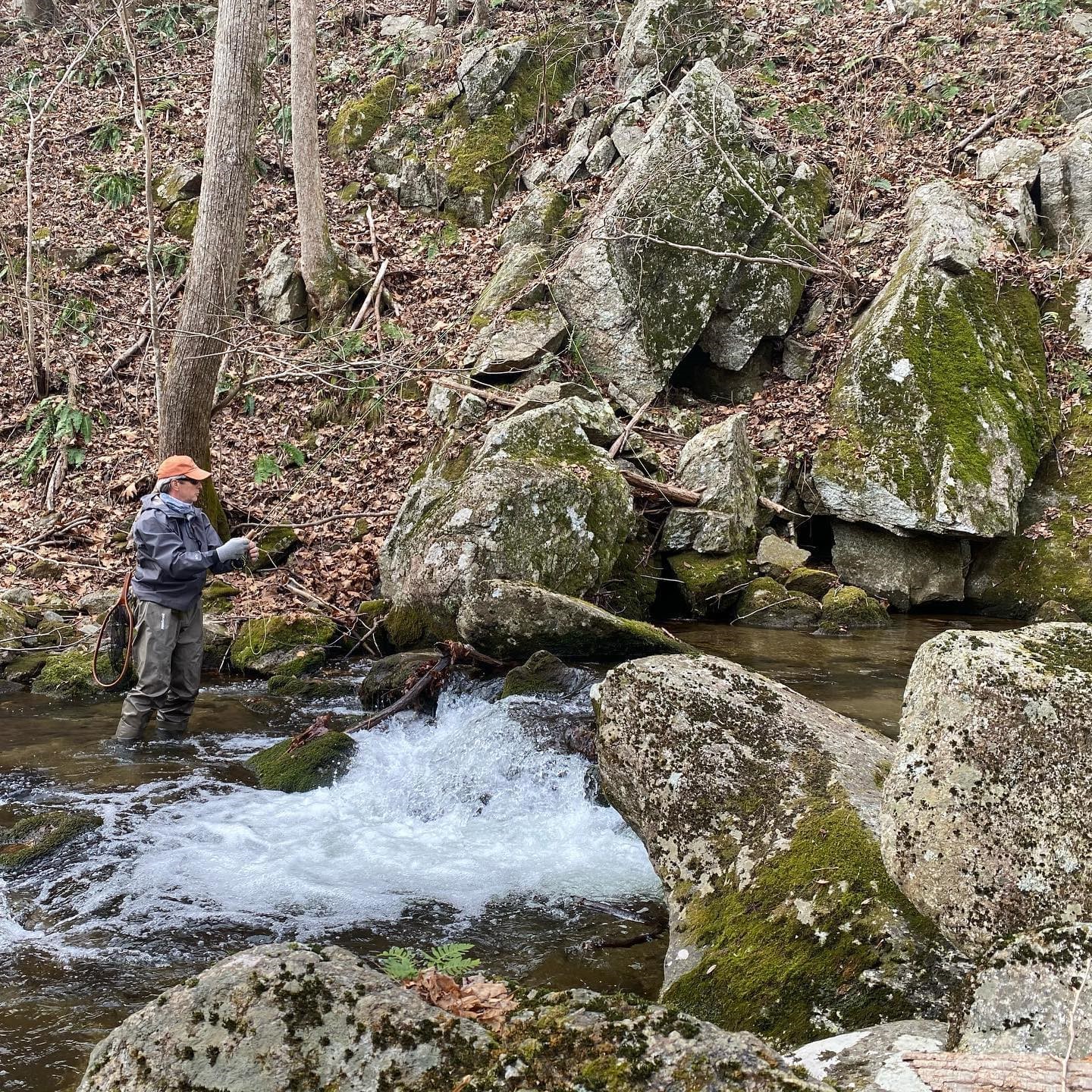 An article for The Cathedral Times
An article for The Cathedral Times
by the Rev. Canon George Maxwell, Vicar
June 2, 2024
It was the last day of an annual fly fishing trip that I take with old friends on a trout stream up in Virginia. I had been fishing for more than an hour and had caught … nothing. I had not even seen anything except the splash a fish makes when it refuses your fly. I began to wonder why. Was I using the wrong fly? Should I be using a nymph? Was I spooking the fish? Was I standing in water I should be fishing? Then it dawned on me. I’m just not any good!
It was time for a break. My jaw began to clench as I pictured the empty-handed confession I was going to have to make to my friends. I felt a rising need to blame somebody for something.
I have a practice for times like this. It’s a three-step attitude adjustment that works with Psalm 46:10: “Be still and know that I am God.”
Be still. I start by repeating the phrase, “Be still and know that I am God.” Then, I drop a word after each repetition. The second time through I say, “Be still and know that I am.” The third time I say, “Be still and know that I.” After I say, “Be,” I add back a word after each repetition. So, the next time I say, “Be still.” By the time I say the whole phrase again, “Be still and know that I am God,” I have usually recentered myself enough to get back to whatever I was doing.
And know. If I am still not grounded, then I try to experience my feelings and the physical sensations they generate (particularly in my face, chest, and stomach) without paying any attention to my opinions and judgments. I sometimes find it helpful to ask, “What is this?” The question focuses me on what I’m experiencing in my body. The point is to create some distance between what is really happening and whatever story I am telling myself about why it is happening.
That I am God. If I still can’t just let my experience be, then I remind myself that God is God and I am not. I use a breathing practice taught by the Zen teacher, Ezra Bayda. He advises that, to open ourselves to our deepest fears and humiliations, we breathe the painful reactions (including the physical sensations) into the center of the chest. I don’t know why it works. I only know that, when I do it, I often find the strength and courage to go on.
When I had finished the practice (yes, all three steps), it was time to go fishing. I slipped down the rock and began wading carefully up the stream. I instinctively crouched over and pointed my rod behind me to avoid spooking the fish. After looking over the next hole, I changed my fly and added a dropper. I hid behind a rock and cast my line into the water where I thought the fish would be.
It turned out to be a great day on the water. I only had to use the practice once more (only the first two steps this time). About two hours later, after executing an admittedly average side arm roll cast, I decided that I was really good at fishing!
